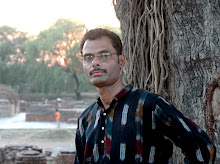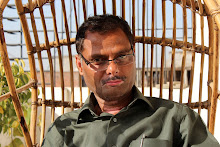Tuesday, August 4, 2009
Voluntary Agencies And Care Of Old Aged
Sunday, July 26, 2009
VOLUNTARY AGENCIES AND CARE OF OLD AGED: A study based on the organizations for old aged persons in Varanasi
---------------------------------------------------------------------------------
The pervasive and ubiquitous nature of change in modern Indian society is exemplified in various spheres of personal and social life. One of the key areas where such changes are more pronounced is the shift in the structural support to the old aged person. Family and kinship organizations, which were nodal organizations in the support and care of the old aged person, have declined and secondary organizations are emerging to take care of the old aged persons. The structures and operations of these organizations in the context of the Indian cultural milieu have assumed new dimension. In Kashi, the holy city of Hindus, there are number of social and religious charitable organizations which are not simply a shelter home and support apparatus to the old aged persons but are performing pivotal role in attaining religious goals and psychological solace to the old aged persons.
The present study in the context of Varanasi explores the types of religio-cultural organizations available for old aged persons. It also endeavours to understand the psychosocial relief and satisfaction which old aged persons receive through these organizations. Four major voluntary organizations of the city have been selected. Data have been gathered through formal interviews and observation technique.
The study finds that the voluntary agencies in Kashi are playing a positive role in the care of old aged persons. The distancing from the family residence and loss of primary bonds with members closer to the old aged persons get blurred because of the voluntary agencies in Kashi being the religio-cultural organizations. The alienation, aloofness and the dependency of the old aged persons get sublimated in the wake of his entrance in a culturally defined world. The voluntary agencies thus become a facilitator and serve the cause of the old aged person in his search for solace and salvation at the fag end of his life.
FEEL FREE TO COMMENT…
==========================================================
Dr. Umesh K. Singh, K46/166, Hartirath, Varanasi-221001,
Friday, June 5, 2009
Sensitization of Family Members for Better Health Care of The Old Aged Persons--an approach
Sensitization of Family Members for Better Health Care of The Old Aged Persons
During old age the manifestation of diseases gets very high and demands specialized medical care and support. However only formal institutional medical care and support is inadequate in traditional country like India. The present paper inquires about the role of family support in medical treatment, rehabilitation and care of the old aged person.
The study follows observation technique to understand the patterns of changes in the family care being given to the old aged person in the changing socio-economic milieu. In addition, inferential analysis of the observed data has also been made to find out the gestalt of the family care.
With the advancement of age, the role of family becomes very important in care giving. Health becomes old aged person’s prime concern which cannot be addressed solely by institutionalized medical care. Hospice no doubt provides a specialized mechanism for shelter, health and medical care of the old aged persons but it is not enough. During pre and post hospice care the immediate family members and relatives provide most of the care. Economic support along with emotional care solely comes from the family. Similarly during the long tenure in which the old person is alive after serious health problems, it is the family which acts as rehabilitating mechanism.
To achieve better results for the health care of the elderly, it is essential that the traditional family care should be given higher precedence. Simple medical care or the alternative of old age home is not sufficient to provide adequate relief. The family members should re-learn the traditional values for providing respect and care to the old aged persons. This not only will bring back the missing touch of human bond in old age but will also make health care of old aged persons more feasible and sustainable...
FEEL FREE TO COMMENT...
Dr. Umesh K. Singh, K46/166, Hartirath, Varanasi-221001,
Wednesday, April 8, 2009
End-of-Life Care
Sunday, April 5, 2009
Culture Specific and Culture Sensitive End-of-Life Care A Case Study Based on Kashi Labh Mukti Bhawan, Banaras
In all the major civilizations of the world, death, dying, disposal of dead body and the rituals related with death have been major concern of the society. In Hinduism, old age care and death have achieved not only special connotations in terms of spiritual and religious values but also culturally defined modes of behaviour. Kashi, the holy city of Hindus, has special significance in the process of old age care, dying and death. The city abounds in terms of old age care institutions run either by some charitable organizations or by some social welfare organizations, yet it is the Kashi Labh Mukti Bhawan which is a unique organization that illustrates the culture specific and culture sensitive end-of-life care in abundance. For those living out of the sacred space of Kashi, this organization serves as an instrument to fulfill their last wish to die in Kashi and have their last rites and other rituals in this sacred city.
The present study is based on Kashi Labh Mukti Bhawan. It explores the nature of services and facilities available for the dying old aged persons in this organization. It also endeavours to understand the fulfillment of religious and psychosocial needs and satisfaction which old aged persons and their family receive through this organization. Data of the study have been gathered through formal interviews and observation technique.
The study finds that the Kashi Labh Mukti Bhawan is not simply a shelter home and support apparatus to provide end-of-life care to the dying ones but is performing an important role in attaining religious goals and psychological solace to the dying old aged person. The Kashi Labh Mukti Bhawan thus becomes a facilitator and serves the cause of the old aged person in his journey towards salvation and spiritual satisfaction at the fag end of his life. As such, this institution exemplifies the end-of-life care which is culture sensitive and encompasses the values and belief system of Hinduism.
Feel free to comment ….
Dr. Umesh K. Singh, K46/166, Hartirath, Varanasi-221001,


